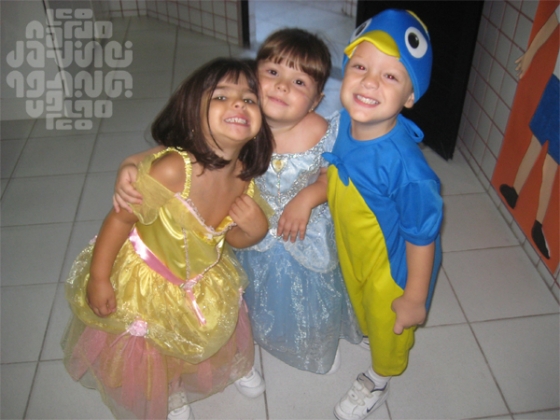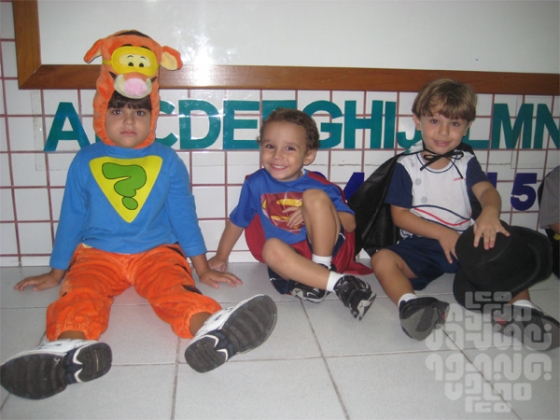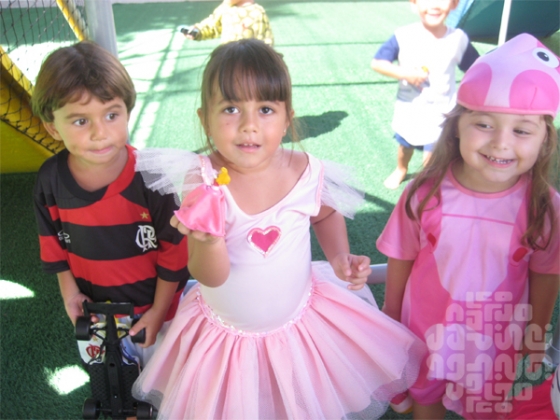"Remember, tomorrow is costume and toy day! Don’t forget!!!”
Every Friday, the students of Infantil II-I enter the fantasy world of super heroes and princesses, cartoon characters, and more as they get a chance to part take in what is known as “Costume and Toy Day.” By Thursday afternoon, everyone is excitedly asking “Tomorrow can I bring my costume?”; anticipating the fun and adventure that awaits. “Costume and Toy Day” not only gives the students a chance to relax from the hustle and bustle of daily school life and work, but also plays a greater and very important role, from a developmental point of view.

Children engaged in “make-believe play” create their own interpretation of life and the world. They entertain themselves and many times, without knowing it, attempt to comprehend the complexities of life. They also gain a basis for incorporating and consolidating imagination. Imagination allows for the opportunity to travel thorough space and time. Imagination opens the doors to exploration and reinterpretation, transforming experiences into stories, and creates a platform for self-expression. With the routines objects that are bound up in daily life, play, in its many forms, gives a sense of freedom, while still incorporating the sensibility of order and rules.
Play stimulates children as they grow and provides an important role in education, both inside and outside of the classroom. Play is seen as a legitimate socializing force and a valued form of social and emotional learning.

As children play, they use symbolism to reshape material from the external world, enabling them to form internal representations of reality. It is through play that children learn to understand and imitate complex adult actions and speech. Toys can be used to symbolize materials from a child’s own reality aiding in the understanding of the adult world. Toys are infinitely adaptable and can take on meanings other than those they originally signified. Creative play involves the discovery of rules and helps define and interpret many situations from both every day life and the imaginary world.
Playing make-believe offers much potential for learning. Play is a dynamic activity that allows children to encounter aspects of the world that are not part of their daily lives and to rehearse, interpret, and try out new meanings of complex social relations.


Rua Elias Tommasi Sobrinho, 154, Santa Lúcia - Vitória, ES - Brasil - CEP 29056-910 - Tel: (27) 3334 6300
© Centro Educacional Leonardo da Vinci 2025 · www.davincivix.com.br
